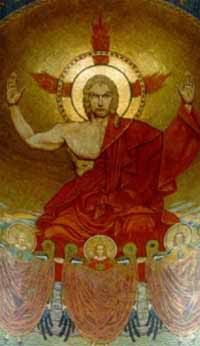Let's get ready for this

School Voucher programs, exemption from property tax, charitable tax
write-offs.The drive to eliminate these is heating up. And it will be painful.
Many Voucher schools now exist upon the good pleasure of the state. They can
disappear at the same good pleasure.More than one Priest has mentioned that the homilies are crafted with
unofficial censorship so as not to offend or jeopardize the parish's tax exempt
status.After giving millions to the hungry victims of the sex scandals, there may be
another financial blow coming.Perhaps a poor and chaste Church, made so by circumstance, is coming closer.
And if so, we will endure and be stronger for it.
RELIGIOUS organizations throughout the country are accorded countless exemptions from taxes and federal regulations. A New York Times article this month claimed that since 1989, more than 200 such special arrangements, protections and exemptions have been included in congressional legislation and endorsed by politicians of both major parties. The practice of regulatory exemptions and tax breaks for churches and religious groups gained momentum under President Clinton and has greatly accelerated under President Bush, who has tried through his faith-based initiative to create new legal precedents for such advantages and to make religious groups eligible for numerous state and federal grants and contracts.
The people who really did build this nation most definitely did not define "religious freedom" as the right of churches or other religious groups to benefit from taxpayer dollars. In fact, James Madison, the thinker who probably contributed more than any other to the legal foundations of our nation and who is frequently referred to as the father of the Constitution, was unambiguous on the subject.
First of all, he thought the idea of a church — any church — acquiring property and wealth to be directly contradictory to the principles of the Constitution. In his "Detached Memoranda," a collection of private reflections, Madison warned against "the danger of a direct mixture of Religion & civil Government" as well as "an evil which ought to be guarded ag[ain]st in the indefinite accumulation of property from the capacity of holding it in perpetuity by ecclesiastical corporations…. Are the U.S. duly awake to the tendency of the precedents they are establishing, in the multiplied incorporations of Religious Congregations with the faculty of acquiring & holding property real as well as personal?"
He did not approve, in other words, of churches and religious societies being given a "legal agency" (including taxpayer funds) to carry into effect "a public and civil duty." The public weal is the responsibility of the government itself, funded through taxation. Any charitable work churches might undertake is "pious charity," and as such a voluntary act on the part of church members.
Supporters of the faith-based initiative point out, with justice, the many wonderful charitable programs religious groups have provided, and some of them accuse separationists of waging a war against religion. This distorts the argument severely.
Separationists are not attacking religion. They are merely reminding us that religion and church membership, under our Constitution, are defined as voluntary — the general population cannot be compelled to underwrite any particular church. That is what freedom of religion means.




0 Comments:
Post a Comment
<< Home